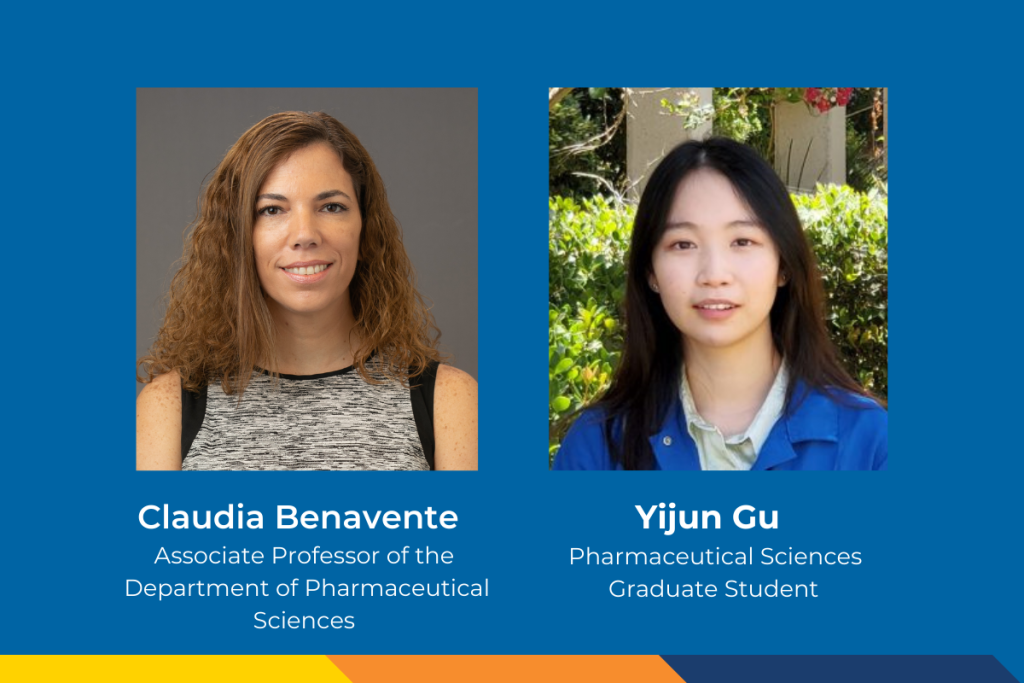Dr. Claudia Benavente, Pharmaceutical Sciences Graduate Student Yijun Gu, and Team Granted Research Award from American Lung Association
Dr. Claudia Benavente, associate professor of the Department of Pharmaceutical Sciences, and Yijun Gu, a pharmaceutical sciences graduate student, along with their team, received a two-year, $100,000-per-year research grant from the American Lung Association.
The team was granted the Lung Cancer Discovery Award, an independent research award that supports advances in the study and treatment of lung cancer. Potential awardees must submit an application to the organization, including a proposal detailing their research goals and plans to utilize the funding. Submitted proposals are evaluated by the American Lung Association and peers within the scientific community to determine which projects will be funded. The funds will provide the researchers with the resources to explore possible therapies for small cell lung cancer (SCLC).
Patients with SCLC are often limited in their treatment options due to a lack of available medicines for this specific type of cancer. The protein UHRF1 has been flagged as a possible pathway to finding a solution. As there are existing drugs that can shut down UHRF1-regulating enzymes, the study aims to explore how such medications can be used to treat SCLC. Benavente and her team have completed similar studies in the past, focused on treating triple-negative breast cancer.
Benavente and Gu will work with the University of North Carolina at Chapel Hill’s Professor Michael Emanuele and his team, who will help to “determine how the inhibitor reshapes the proteome of SCLC, understand how the inhibitor is working (potentially discovering new proteins with therapeutic potential), and expose collateral vulnerabilities.”
Gu will have a hands-on role in this research at UCI. She also assisted with the grant application process.
“Through my experience in this project, I have learned that we have to be more creative in finding new targets to suppress oncogene activities when fighting against small cell lung cancer,” Gu stated. “Our research will bring us closer to developing innovative treatment solutions utilizing cellular proteasomal degradation machinery for this formidable malignancy.”
“The successful completion of this project will establish the therapeutic potential of exploiting the endogenous degradation system of the cell to eliminate pro-tumoral proteins for SCLC treatment purposes,” Benavente shared. The research is considered a “target validation” study, with the ultimate goal of identifying paths to improved treatment, eventually using the results to guide drug development and inform clinical trials on animal models.
